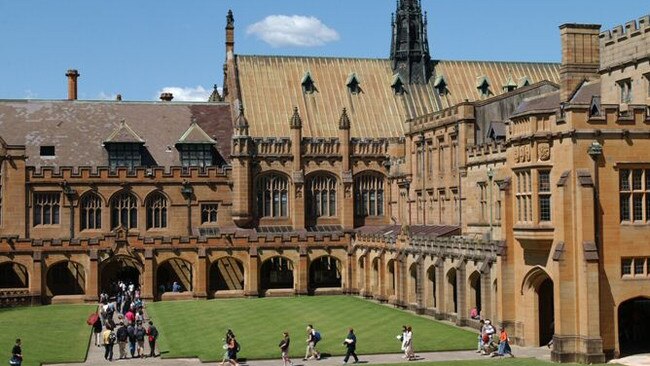Coronavirus: universities face $2bn in lost fees from Chinese travel ban
Credit rating agency S&P Global warned universities could lose up to $2 billion in lost fees due to the China travel ban.

Credit rating agency S&P Global warned on Thursday that universities could lose up to $2bn in fees if Chinese students stranded by the coronavirus travel ban are unable to reach Australia in time for the academic year.
The agency also warned that there would be other economic damage from the loss of student spending, because the $2bn estimate did not include “the broader economic contribution (that students make) to accommodation, tourism and the domestic consumption of goods and services”.
“Unless rescinded within the next few weeks, the travel restrictions will compress operating margins for Australia’s universities,” S&P Global said in a statement on Thursday.
The warning comes as campuses prepare to start filling up for the 2020 academic year — without the nearly 100,000 Chinese students stranded in China.
UNSW, the first university with large numbers of Chinese students to start the academic year, begins Orientation Week on Monday with 9000 of its 15,000 Chinese students absent.
The university is trying to be flexible with starting dates, allowing students affected by the ban to start up to two weeks after classes begin on February 24, with the possibility of online learning in some courses.
The University of Sydney has told Chinese students affected by the travel ban that they can be absent for the first five weeks of semester one — starting as late as March 30 — to allow them more time to reach Australia.
The University of Technology Sydney, which has about 4000 students stuck in China, is building online courses to cover the first four weeks of study in business and engineering, two areas popular with Chinese students.
However, education experts query whether online courses will be effective for Chinese students who are not used to learning remotely. “One can’t just put content online and expect effective learning automatically,” said former University of Canberra vice-chancellor Stephen Parker, now education sector lead at KPMG.
“This needs attention to course design and learner support, assuming students stranded in their home country actually have access to sufficient internet resources.”
University of Sydney Chinese student Bo Pan, who is stranded in Wuhan, told The Australian via WeChat messenger that she was not impressed with online or distance learning as an option in a postgraduate business analysis course.
“For group work, you need to interact with someone in class to be able to choose your team members, and you will need to have meetings and go to the library,” Ms Pan said.
However, she said she would choose the online option, as that was still better than deferring for this semester and extending the length of her course.
Tony Huang — another University of Sydney student stranded in China, who is doing a postgraduate media degree — said many Chinese students believed the online learning option was “not good value for the expensive tuition fees they paid to study abroad”. He said many students would expect a fee discount.
“I am really upset because … Australia is like my second home, where I enjoyed the kindness of its people,” Mr Huang said.
In good news for universities, S&P Global said the credit ratings of the universities it rates had a stable outlook. “We believe they have some buffer in free cash, leverage, and operating margin ratios to absorb a temporary shock,” it said.



To join the conversation, please log in. Don't have an account? Register
Join the conversation, you are commenting as Logout